Feminists In Focus
December 23, 2017 by Aileen Jacobson
When a Woman Made Decisions at Washington Post: New Movie Tells All. Or Most.
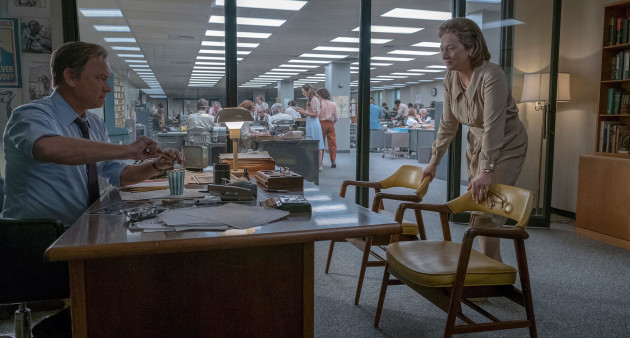
The Post, 20th Century Fox
“The Post,” a new movie starring Meryl Streep and Tom Hanks and directed by Steven Spielberg, could be seen mainly as a saga about the Vietnam-era Pentagon Papers. Or it could be seen as a film about the workings of a newspaper—in this case, The Washington Post.
But, really, what it most feels like is a story about the evolution of a feminist, or at least the beginnings of that evolution. That emerging feminist is Katherine Graham, then the publisher of the Washington Post, a position that had been thrust upon her after her husband’s suicide. She had to make the difficult decision of whether to print contents of the leaked Pentagon Papers despite threats of criminal charges from the White House and warnings from bankers that the move could lead to her company’s demise.
- No Comments
Feminists In Focus, The Lilith Blog
May 16, 2017 by Yaelle Azagury
Two Films Expose Anti-Sephardi and Anti-Mizrahi Racism in Israel
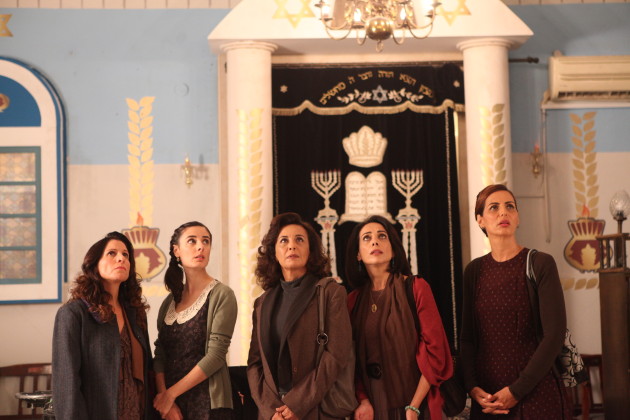
The New York premier of “The Women’s Balcony” was at the NY Jewish Film Festival in January, and the film was also screened as part of the New York Sephardic Film Festival at the American Sephardi Federation in April. The JCC Manhattan will show the film this Sunday, May 21 and it will officially open in Manhattan on May 26 at the Lincoln Plaza Cinema and The Quad.
Dimona Twist and The Women’s Balcony (both 2016 releases) are two fine new films grappling with the status of Sephardim and Mizrahim in Israeli society. Screened at the New York Sephardic Jewish Film Festival at the American Sephardi Federation in April, they both seek to uncover the obliteration of Oriental Jews in Israel since the creation of the State. Both discredit long-established stereotypes while puncturing the myth of a Jewish homeland equally welcoming to Jews of all ethnic backgrounds.
Michal Aviad’s revelatory Dimona Twist is a documentary focusing specifically on women of Moroccan and Tunisian descent who immigrated to Israel in the 1950s and 1960s. It is the companion piece to The Women Pioneers (2013), which elucidated the trajectory of Jewish women from Eastern Europe to Mandate Palestine in pursuit of a utopian society. In both films, Aviad excels at capturing the experience of immigration from a female perspective. She strikes a pitch-perfect note when speaking of the disillusionment experienced by these women upon arrival at the Promised Land. Her latest documentary also comes in the wake of a new wave of films, such as Kamal Hashkar’s From Tinghir to Jerusalem (2013), that strive to challenge the official Israeli narrative regarding North African Jews, who were often portrayed by Zionist propaganda as victims of Arab enmity in order to encourage them to emigrate to Israel.
- No Comments
Feminists In Focus, The Lilith Blog
March 1, 2016 by Amy Stone
What Does a Star Do After Winning the Academy Award for Best Actress?
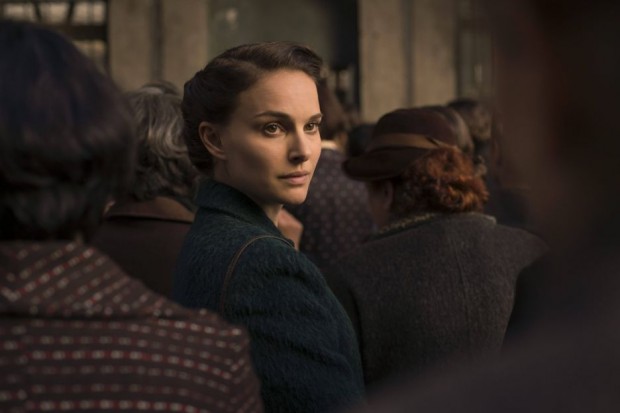
Natalie Portman in “A Tale of Love and Darkness.”
What does a star do after winning the Academy Award for Best Actress?
In a relatively short time, Natalie Portman went from her Oscar win for “Black Swan” in 2011 to starring in, directing and co-writing the film version of Amos Oz’s autobiographical novel “A Tale of Love and Darkness” (2015).
Her personal appearance, along with a crowd of paparazzi, brought a red-carpet buzz to the closing night of the 25th Anniversary New York Jewish Film Festival in January.
For those of us who track the successes for women in film, what a tour de force. Portman, who was born in Jerusalem and has dual US-Israeli citizenship, certainly did it her way. She had major control over the script, which she insisted be in Hebrew with English subtitles. She stars as Fania, Oz’s mother, who came to Mandate Palestine with romantic ideas from her privileged childhood in Poland. With a disappointing marriage in a harsh reality, she pours out her passion and gift for storytelling on young Amos.
But where were the other women filmmakers? With two weeks of films from around the world, from countries large and small, and subject matter in all shapes and sizes, I counted six female directors of feature films to nine males. Most surprising, for shorts, only three women directors to 11 men. For retrospective picks including guest selections, only one woman director (the recently deceased Chantal Akerman) to nine men. (Not to overly weight the statistics, I counted as one the male directing team of two men.) And surely the selection process is not biased against women. Aviva Weintraub, associate curator of the Jewish Museum, is the long-time director of the festival, which is presented by the Film Society of Lincoln Center and the Jewish Museum. Plus, women are well represented on the selection committee.
When I asked Weintraub if there were more women directors today than 25 years ago, she said she hadn’t counted, but probably yes. Clearly this issue is beneath the radar, even as the issue of sub-par status for women and minorities comes up regularly, dragged over the carpet at this year’s Academy Awards.
- No Comments
Feminists In Focus, The Lilith Blog
December 7, 2015 by Amy Stone
“Censored Voices”: Intimate Conversations with Six-Day War Soldiers in a New Film
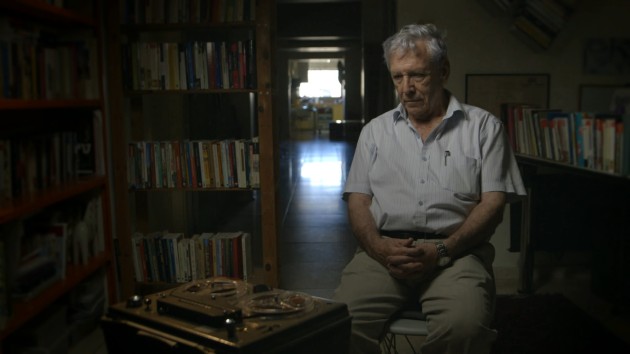
Amos Oz in “Censored Voices”
Perhaps it was her persona—a young woman utterly pure, idealistic and determined—that convinced Avraham Shapira to entrust Mor Loushy with the 200 hours of soldiers’ interviews from the Six-Day War, tapes that had remained in his closet for nearly 50 years. The tapes, sealed by the Israeli Army, hold the voices of kibbutzniks recorded immediately after the ’67 war, expressing their sadness and pain at what they felt was an uncomfortable turning point for Israel. Their voices undermine the mythic triumphalism of the Six-Day War.
Shapira and Amos Oz—the young kibbutznik who grew into the eloquent novelist— tapped into the raw anguish soldiers fresh from victory could not speak about to wives, lovers, friends. Within months, Shapira had transcribed the tapes into The Seventh Day: Soldiers Talk about the Six-Day War. The Israeli Army censored 70 percent, but even the highly redacted publication created a sensation. But gradually the reaction faded. Pride in the David vs. Goliath heroics triumphed as an essential part of the Israeli mythos.
Over the decades, Shapira was approached by those who would make the tapes public, but, in the words of Loushy, now 33, “he continued to protect the intimate conversations.”
In her 20s at the time, with only one film to her credit as director, Loushy pursued the keeper of the tapes. “I wouldn’t take no for an answer,” she said in a Skype interview from Tel Aviv. When she finally approached Shapira at a university lecture, he was ready to trust her, and invited her to his kibbutz. He handed over the tapes, giving her total freedom to create her documentary. It took her three years.
- No Comments
Feminists In Focus, The Lilith Blog
January 21, 2015 by Amy Stone
New York Jewish Film Festival Opener: “The Muses of Isaac Bashevis Singer”
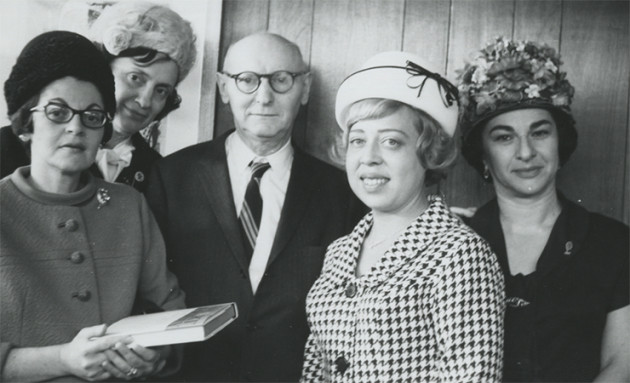 The ghost of Isaac Bashevis Singer got lucky. Two Israeli filmmakers—male – have handed the master of Yiddish tales a posthumous grand slam. He gets the first word and the last cinematic image on his definition of paradise—a harem of translators, all women.
The ghost of Isaac Bashevis Singer got lucky. Two Israeli filmmakers—male – have handed the master of Yiddish tales a posthumous grand slam. He gets the first word and the last cinematic image on his definition of paradise—a harem of translators, all women.
The U.S. premiere of “The Muses of Isaac Bashevis Singer,” the 2014 English-Yiddish-Hebrew documentary directed by Asaf Galay and Shaul Betser, opened the 24th New York Jewish Film Festival on January 14th.
Aside from his first and most famous translator, Saul Bellow (he translated “Gimpel the Fool”), and Singer’s son, seemingly all his dozens of translators were harem material.
We see footage of Singer surrounded by a bevy of young beauties asking him questions like, “Why do you write in Yiddish?” “Because I dream in Yiddish, and you should always write in the language you dream in.”
The 72-minute film brings together a seemingly endless parade of Singer’s translators. It’s a lighthearted journey to honky tonk piano and silent-movie-style scene cards in Yiddish and English.
Few of the women interviewed fault him for his sexual advances, though one, Evelyn Torton Beck, says, “I think I’m very, very lucky he never put the make on me.” (Read what she wrote for Lilith about his misogyny here.) Another translator says, “He slept with all his translators. Except me.” Could the tales of Singer’s irresistible charm have been a bit apocryphal?
- 2 Comments
December 5, 2014 by Amy Stone
‘She’s Beautiful When She’s Angry’ – The women’s movement gets a kick-ass documentary
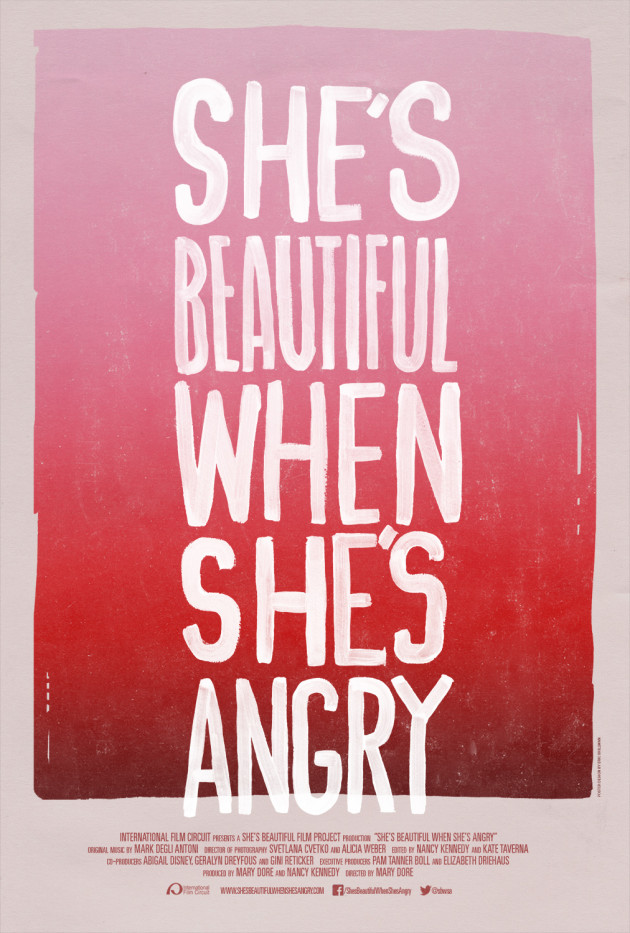 “She’s Beautiful When She’s Angry” is the women’s movement film we’ve been waiting for. We just didn’t know it.
“She’s Beautiful When She’s Angry” is the women’s movement film we’ve been waiting for. We just didn’t know it.
With outrage and humor, the 90-minute documentary brings back the revolution in living color and black-and-white, with torrents of music from the ‘60s and ‘70s. If you were there, it’s the turn-on of reliving the Great Awakening. If you weren’t yet born, hopefully you’ll get what an exciting, life-changing time it was. And–guess what?–it’s not over.
Producer/director Mary Dore, 63, started the project more than 20 years ago, before her twin sons, now 21, were born. With producer Nancy Kennedy and many, many women and some men, and support, which included Kickstarter funding, the film is finally OUT!
- 1 Comment
Feminists In Focus, The Lilith Blog
February 12, 2014 by Amy Stone
Meet on Screen the First Woman Rabbi
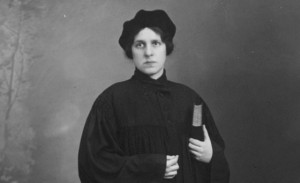
via filmlinc.com
How do you make a documentary about Regina Jonas, the world’s first woman rabbi, when only one photograph survives?
It helps if you’re pushed to do the deed by Elsa Klapheck, the contemporary German rabbi whose book, Fraulein Rabbiner Jonas: The Story of the First Woman Rabbi, is the definitive source on this extraordinary woman, born in Berlin in 1902 and ordained in 1935. (The book has been translated into English by Lilith contributor Toby Axelrod. Klapheck, ordained in Frankfurt, is the first woman rabbi in the Netherlands.)
“Regina” — Diana Groó calls her film “a poetic documentary” of Regina Jonas — made its U.S. premiere in January at the 23rd NY Jewish Film Festival, presented by the Film Society of Lincoln Center and The Jewish Museum. The 63-minute film is in English.
Groó, 40, who seems either doomed or destined to be identified as a Jewish Hungarian filmmaker, stayed true to the hundreds of documents Regina Jonas managed to save for posterity. The poetry comes with the archival footage – going back to 1900s Berlin — combined with music and voices. British actress Rachel Weisz is the voice of Regina Jonas. Others giving life to archival material include Groó’s grandmother, 86, the same age as Jonas’s students would have been, and a survivor of four concentration camps.
- No Comments
February 14, 2013 by Amy Stone
Where the Women Are (At the 22nd Annual NY Jewish Film Festival)
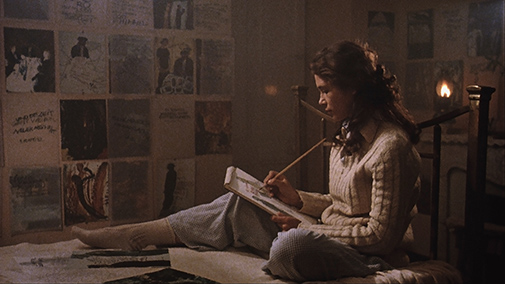
Life? Or Theatre?
Dutch director – male – obsessed with tragic German artist – female. German auteur filmmaker – female – honing in on interplay of intellect and sexuality driving renowned German-American political theorist – also female. Polish filmmakers – male – documenting a Polish town’s response to death camp transports but failing to get the only known survivor dropped from a train, a woman, to talk.
What do this year’s NY Jewish Film Festival offerings say about the roles of Jewish women when women and men make film? From a wide-ranging two weeks of domestic and international films, here come snapshots of three Shoah-related films: one documentary, one feature, one documentary short.
Long-time Dutch filmmaker Frans Weisz is a man obsessed with artist Charlotte Salomon, the subject of his 1981 feature film “Charlotte” and his freewheeling documentary, 30 years later, “Life? Or Theatre?”
Poor Charlotte. The shy, almost invisible, middle-class German Jew. She had one passionate relationship in Nazi Berlin before fleeing to the relative safety of a wealthy American woman’s chateau in the south of France. As Hitler destroyed European Jewry, Charlotte worked out her own life story in Leben? oder Theater? Diving into this massive work was her response to learning of her family’s hidden history of suicide, including her own mother. (Now in Amsterdam’s Jewish Historical Museum, the nearly 800 gouaches are like the storyboard for a musical, a three-part life story with acts and scenes, with tracing-paper overlays of comments and musical notations. The artist pared them down from an outpouring of some 1,300 pieces.)
- 1 Comment
February 11, 2013 by Guest Blogger
What’s a Friend to Do?
Dispatches from the New York Jewish Film Festival
 Light up a cigarette. Or, better yet, have some charming, young male student acolyte do it for you. There will be smoke in your eyes after you see “Hannah Arendt,” the 2012 German biopic directed by feminist auteur Margarethe von Trotta and starring Barbara Sukowa as Arendt and Janet McTeer as her dear friend Mary McCarthy.
Light up a cigarette. Or, better yet, have some charming, young male student acolyte do it for you. There will be smoke in your eyes after you see “Hannah Arendt,” the 2012 German biopic directed by feminist auteur Margarethe von Trotta and starring Barbara Sukowa as Arendt and Janet McTeer as her dear friend Mary McCarthy.
The film’s New York premiere closed the New York Jewish Film Festival to a full house Jan. 24. Its commercial run opens at the Film Forum in New York May 29, followed by national release.
“Arendt” is a sexy film which wants to be a film about ideas.
Retelling the well-known story of the furor created by Arendt’s Eichmann in Jerusalem: A Report on the Banality of Evil (1963), “Arendt” does so through the lens of friendship and its limits, shot with a “Mad Men” aesthetic in Manhattan and Jerusalem. Dialogue is in English and German, with subtitles as needed.
Arendt, a German-Jewish refugee from Nazism, rose to prominence among the largely Jewish and male group of New York public intellectuals with The Origins of Totalitarianism (1951), a penetrating study of Nazism, Stalinism, and the modern state. She taught at the New School for Social Research and at the University of Chicago. Eichmann, Arendt’s report of the 1961 trial, set these intellectuals on edge because of the work’s charge that Jewish leaders had collaborated with the Nazis in the destruction of the Jews and that Eichmann was not a murderous anti-Semite. Arendt depicted him as an ordinary man following bureaucratic orders. His compliance was evil’s “banality.”
- No Comments
February 6, 2013 by Amy Stone
Let Us Now Praise Non-Jewish Jews
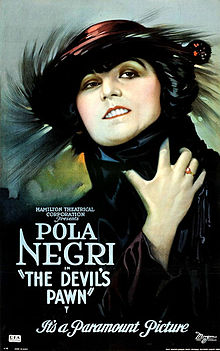
Dispatches from the NY Jewish Film Festival.
(The 22nd New York Jewish Film Festival, presented by The Jewish Museum and the Film Society of Lincoln Center, ran through Jan. 24, 2013. The Ninth Annual Brooklyn Israel Film Festival, ran Jan. 24, 26, 27. For details, visit here.)
[WARNING: If by some long shot you’re planning to see “The Yellow Ticket” do not let this review ruin the plot. Skip to “AKA Doc Pomus.”]
The jaw-dropping happy ending to the 1918 Pola Negri silent film “The Yellow Ticket” (also translated as “The Devil’s Pawn”) is that the super smart and beautiful young Jewess from Warsaw is not Jewish. She’s the love child of the distinguished medical professor whom she’s studying with in St. Petersburg. She then gets to accept the affection of her dashing Russian classmate.
But this OMG-she’s-not-Jewish ending shouldn’t make the film traif. The plot is based on a Yiddish melodrama and is believed to be the earliest film dealing with discrimination against Jews in Czarist Russia.
“The Yellow Ticket” was screened at the NY Film Festival Jan. 10, with a new score by klezmer violinist extraordinaire Alicia Svigals, with Svigals on violin and singing, and Marilyn Lerner on piano.
Amidst the pantomimed over-acting that is the hallmark of many a silent film, Negri plays the brilliant young woman with delicacy, despite the heavy-duty black eye makeup found only on a silent film star or a raccoon.
- No Comments
 Please wait...
Please wait...